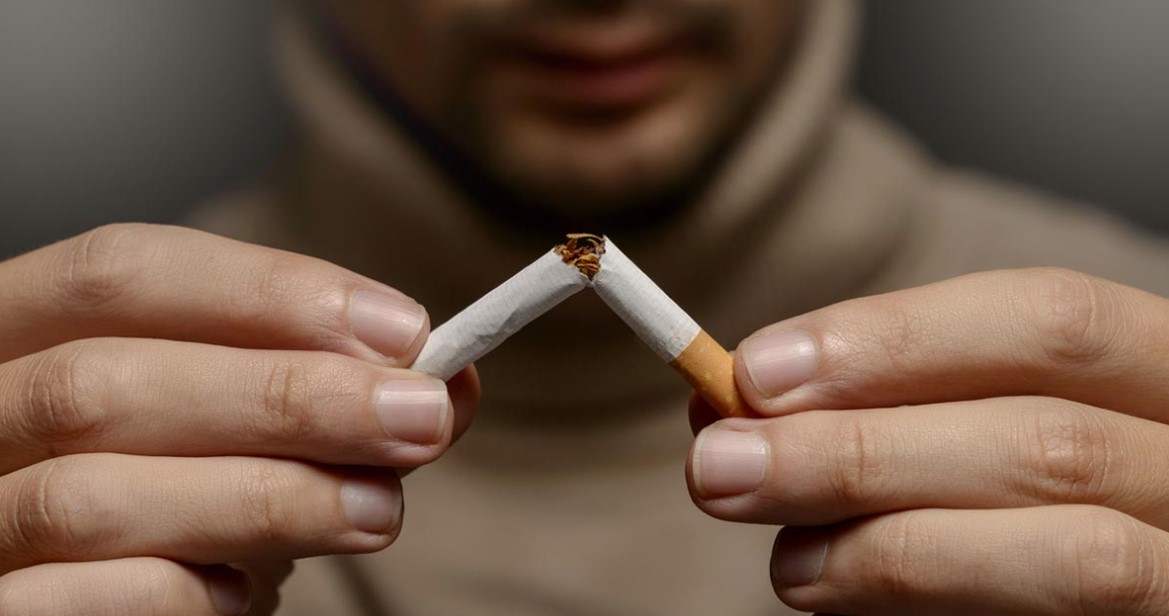Smoking involves the inhalation of smoke from smoldering tobacco or other plant-based substances to saturate the body with nicotine and other psychoactive compounds. Besides the physical act of smoking, the term can also refer to the burning or vaporization of incense and aromatic substances used in religious rituals, aromatherapy, and air scenting. Smoking is highly addictive and harmful, leading to severe diseases in the respiratory, cardiovascular, digestive, and other systems. Tobacco use is a significant public health issue, leading to premature death and increased morbidity due to cardiovascular disease, lung cancer, various other cancers, and chronic obstructive pulmonary disease (COPD). All tobacco users must quit smoking. This article explores what happens to the body after quitting smoking and highlights the role of innovative product companies like iTerea in aiding this process.
Page Contents
Withdrawal Symptoms
Nicotine addiction causes both mental and physical dependence, making quitting smoking challenging. Withdrawal symptoms are most intense during the first three days, leading many to relapse. Common withdrawal symptoms include:
– Irritability: Increased difficulty in managing conflicts and controlling emotions. Smokers often find themselves more short-tempered and prone to emotional outbursts.
– Sleep disturbances: Trouble falling asleep and experiencing thematic dreams about smoking. Many ex-smokers report restless nights and vivid dreams involving cigarettes.
– Decreased concentration: Difficulty focusing on tasks and starting work. Cognitive functions such as memory and attention span may temporarily decline.
– Mood swings: Increased anxiety and reduced mood. Feelings of depression and heightened stress levels are common during the initial quitting phase.
– Increased appetite: A strong desire to eat, often leading to weight gain. This is due to the body’s attempt to replace the oral fixation and endorphin release once provided by smoking.
The First Few Days and Weeks
Day 1-3:
– Nicotine leaves the body within 12-24 hours, causing a decrease in vascular tone and blood pressure. Smokers may feel lightheaded and experience heart palpitations.
– Smokers may experience dizziness, heartache, and increased coughing as chronic bronchitis symptoms worsen. The body begins to clear out mucus and other debris from the lungs.
Day 3:
– This is often the hardest day, with withdrawal symptoms peaking and many smokers struggling to resist the urge to smoke again. The body and brain intensely crave nicotine, making this period critical for long-term success.
Day 7:
– A sense of freedom from smoking emerges, but there’s a risk of a false belief that they can smoke occasionally without falling back into addiction. Psychological cravings may still be strong, and it’s important to remain vigilant.

The First Six Months
1-3 Months:
– The body starts to heal: skin cells, lung tissue, and blood vessels renew. Smokers often notice an improvement in their overall complexion and lung function.
– Despite these positive changes, smokers might experience a dry cough, stomatitis, and sore throat due to decreased mucus production and impaired local immunity. This period can be challenging as the body adjusts to functioning without nicotine.
3-6 Months:
– The skin condition changes, often leading to acne and potentially worsening skin conditions like dermatitis and eczema. The skin begins to purge toxins, leading to temporary breakouts.
– Gastrointestinal enzymes normalize, improving digestion and restoring taste and smell receptors. This often leads to increased appetite and potential weight gain. Foods may taste more flavorful, leading to increased enjoyment of meals.
Weight Gain Concerns
Many fear significant weight gain (up to 20-30 kg) after quitting smoking. This is due to:
– Increased appetite: Losing nicotine’s effect on glucose release increases appetite. Ex-smokers often feel hungrier and may eat more frequently.
– Stress eating: Quitting smoking removes a major source of endorphins, leading individuals to seek comfort in high-calorie foods. This can result in a significant caloric increase if not managed carefully.

A Year Without Smoking
Health Improvements
– If no chronic obstructive pulmonary disease has developed, individuals often feel much healthier, with reduced coughing and shortness of breath. The lungs continue to heal, improving respiratory function.
– If there were structural changes in the lungs, these may go into remission but could worsen with respiratory infections. Regular check-ups and a healthy lifestyle can help maintain lung health.
Weight Management
– The average weight gain is about 4.5 kg. Those who tend to overeat may gain more weight, often substituting cigarettes with unhealthy foods. Maintaining a balanced diet and regular exercise can mitigate this risk.
Reduced Risk of Disease
– The risk of death from stroke decreases by 30%. The cardiovascular system starts to recover, reducing the likelihood of stroke.
– The likelihood of acute myocardial infarction is reduced by 50%. Improved heart health leads to fewer cardiac events.
– The risk of developing cancer drops by 90%. With the removal of carcinogens from the body, the chances of developing smoking-related cancers significantly decrease.
Long-Term Benefits and Strategies
Quitting smoking is a long and challenging process that requires determination and support. The long-term benefits are substantial, but the journey has its challenges. To increase the likelihood of success, consider the following strategies:
– Support Systems: Engage in support groups, counseling, or therapy to manage withdrawal symptoms and psychological cravings.
– Nicotine Replacement Therapy (NRT): Use NRT products like patches, gum, or lozenges to gradually reduce nicotine dependence.
– Healthy Lifestyle: Adopt a balanced diet and regular exercise routine to manage weight gain and improve overall health.
– Mindfulness and Stress Management: Practice mindfulness, meditation, or yoga to cope with stress and anxiety without resorting to smoking.
Conclusion
Quitting smoking is a challenging yet rewarding process that requires a serious commitment to avoid relapse. Many experts recommend transitioning to smokeless smoking systems like iQOS to reduce nicotine intake gradually. In Dubai, the online dealer iTerеa offers consultations and all necessary products for quitting smoking. For example, the IQOS TEREA Green, with a balanced menthol cooling taste and a lightly toasted tobacco blend enriched with notes of green mint, is available for AED 150.
By quitting smoking, individuals can significantly improve their health and reduce the risk of severe diseases, leading to a longer and healthier life. The journey may be tough, but the benefits far outweigh the challenges, making the effort to quit smoking worthwhile.



